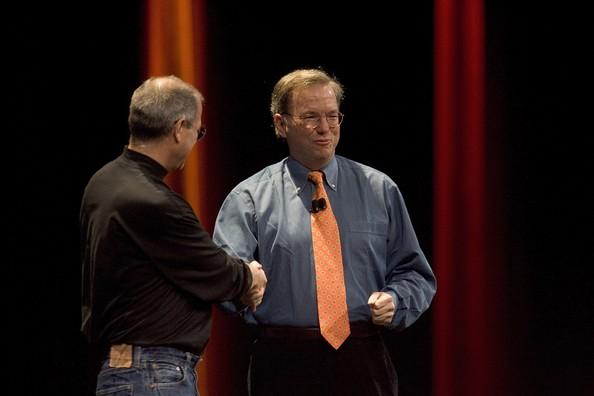A federal judge on Friday issued an order denying requests from Apple, Google, Intel and Adobe to escape going to trial over claims that the four tech heavyweights artificially suppressed employee wages through anti-poaching agreements.
U.S. District Court Judge Lucy Koh handed down her ruling denying individual motions from each of the four tech companies seeking summary judgment, which would have stopped the case from going to trial.
Apple and the three other tech giants are facing a class action lawsuit over alleged wage suppression as a result of anti-solicitation agreements formed by top-level executives. Judge Koh granted class status in October after initially denying the request six months earlier.
As noted by in-court reports from The Wall Street Journal, both plaintiffs and defendants claimed during a hearing on Thursday that progress was being made toward a potential settlement, but an actual deal was not yet in the offing.
From Judge Koh's ruling:
The similarities in the various agreements, the small number of intertwining high-level executives who entered into and enforced the agreements, Defendants' knowledge about the other agreements, the sharing and benchmarking of confidential compensation information among Defendants and even between firms that did not have bilateral anti-solicitation agreements, along with Defendants' expansion and attempted expansion of the anti-solicitation agreements constitutes evidence, viewed in the light most favorable to Plaintiffs, that tends to exclude the possibility that defendants acted independently, such that the question of whether there was an overarching conspiracy must be resolved by a jury.
In the order, Judge Koh cites anti-solicitation discussions between high-ranking executives, including late Apple cofounder Steve Jobs, carried out through email and other correspondence. One such email exchange between Jobs and Google cofounder Sergey Brin was highlighted earlier in March after being submitted as evidence.
In 2005, Google was looking to hire away members from Apple's Safari team, a move that "agitated" Jobs. He reportedly spoke to Brin, vowing to start a war if Google ended up hiring any of the candidates. Less than one month later, a supposed anti-poaching agreement was in place.
Jobs also made similar asks of other top company execs like Edward Colligan, former CEO of erstwhile handset maker Palm. Colligan refused to enter any such agreement, however, saying that it was "likely illegal."
Plaintiffs in the current class action suit — some 64,000 past and present employees — argue that these anti-solicitation methods held down wages. Further, Judge Koh notes in the ruling that there may be evidence that certain companies shared wage information despite being direct competitors for talent.
The U.S. Department of Justice leveled its own lawsuit regarding the matter after investigating Apple, Adobe, Google, Intel, Intuit, and Pixar for the same anti-poaching measures. The defendants ultimately settled with the DOJ in 2010.
Trial proceedings for the case High-Tech Employee Antitrust Litigation are scheduled to commence on May 27.
 Mikey Campbell
Mikey Campbell







-m.jpg)






 Chip Loder
Chip Loder
 Wesley Hilliard
Wesley Hilliard
 Marko Zivkovic
Marko Zivkovic

 Christine McKee
Christine McKee
 Amber Neely
Amber Neely

 Malcolm Owen
Malcolm Owen








18 Comments
This one's going to be nasty. Apple is dead guilty of this, as are many others.
This wouldn't have happened if Tim Cook were in charge (at the time).
[quote name="GTR" url="/t/175655/silicon-valley-anti-poaching-suit-to-proceed-as-judge-denies-requests-from-apple-others#post_2505720"]This one's going to be nasty. Apple is dead guilty of this, as are many others.[/quote] Circle this date. GTR and I agree. :D Kidding aside tho Apple, Google, Adobe and the other conspirators should absolutely be found guilty and hit with serious penalties.
The problem is that your competitors will poach your employees if there is not an agreement. There is nothing stopping a poached employee from disclosing secrets and IP even if they sign a non-disclosure agreement as long the implementation/code of the IP is disguised well.
We all have seen the lengths that some of these companies will go to to try and compete with Apple. This is a tough situation to deal with from a R&D point of view.
Without some kind of agreement an employer probably would be forced to pay unreasonable compensation for some of the workers to keep them employed.
GET A NEW JUDGE.